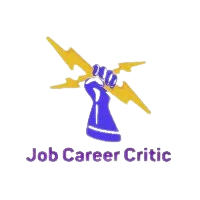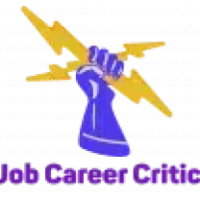
Be Ready For The Unexpected In Your Interview
How to prepare for an interview can be a tricky subject and should not be taken for granted just because you have a 3.8 or a 4.0 on a 4.0 max score. There are other factors to be considered before someone is going to hire you to make you a part of their curated staff of workers. At Job Career Critic we recognized that many young workers just entering the job market and those who want to improve their interviewing skills to get a better job need the information detailed in this blog. The job landscape has shifted in the last 3 years and those who are aware of this will get that job they have always wanted because it’s possible now with this job landscape still very much unsettled.
Preparing for a job interview is crucial to increase your chances of success. Here are some steps to help you prepare effectively:
- Research the company: Spend time researching the company, its mission, values, products or services, organizational structure, and recent news. Familiarize yourself with the company’s culture, competitors, and industry trends. This will help you tailor your answers to align with the company’s expectations and demonstrate your interest in the role.
- Know the job description: Thoroughly review the job description and make a list of the key qualifications and requirements. Be prepared to discuss how your skills, experiences, and achievements align with the job description. Prepare examples of how you have demonstrated those skills in previous roles.
- Dress appropriately: Dress professionally and appropriately for the job interview. Research the company’s dress code and culture to determine the appropriate attire for the interview. It’s better to be overdressed than underdressed.
- Practice common interview questions: Prepare answers for common interview questions such as “Tell me about yourself,” “Why are you interested in this position?” and “What are your strengths and weaknesses?” Practice your responses to these questions to ensure you can articulate your thoughts clearly and concisely.
- Prepare questions to ask: Prepare thoughtful questions to ask the interviewer about the company, team, and role. This shows your genuine interest and engagement in the interview process. Avoid questions related to salary or benefits at this stage.
- Bring necessary documents: Organize and bring copies of your resume, cover letter, and any other documents requested by the employer. Have them ready in a neat folder or portfolio to demonstrate professionalism.
- Review your own qualifications: Reflect on your own qualifications, experiences, and achievements. Be prepared to discuss how they align with the job requirements and how you can contribute to the company’s success.
- Practice good body language: Pay attention to your body language during the interview. Maintain eye contact, smile, and use positive gestures. Sit up straight and engage actively in the conversation.
- Prepare for behavioral questions: Many interviews include behavioral questions that ask you to describe how you have handled specific situations in the past. Use the STAR method (Situation, Task, Action, Result) to structure your responses and provide clear examples of your skills and experiences.
- Follow up after the interview: Send a thank-you note or email to the interviewer within 24 hours to express your appreciation for the opportunity and reiterate your interest in the position.
Remember to practice, stay confident, and be yourself during the interview. Good luck! Confidence and not overconfidence is the key to sticking in the mind of the interviewer. Employers want individuals who exude a certain know-how quality that is the keystone of problem solvers. If you can impress your interviewer and you possess those problem-solving skills you will get the job. So from us at Job Career Critic good job hunting.




